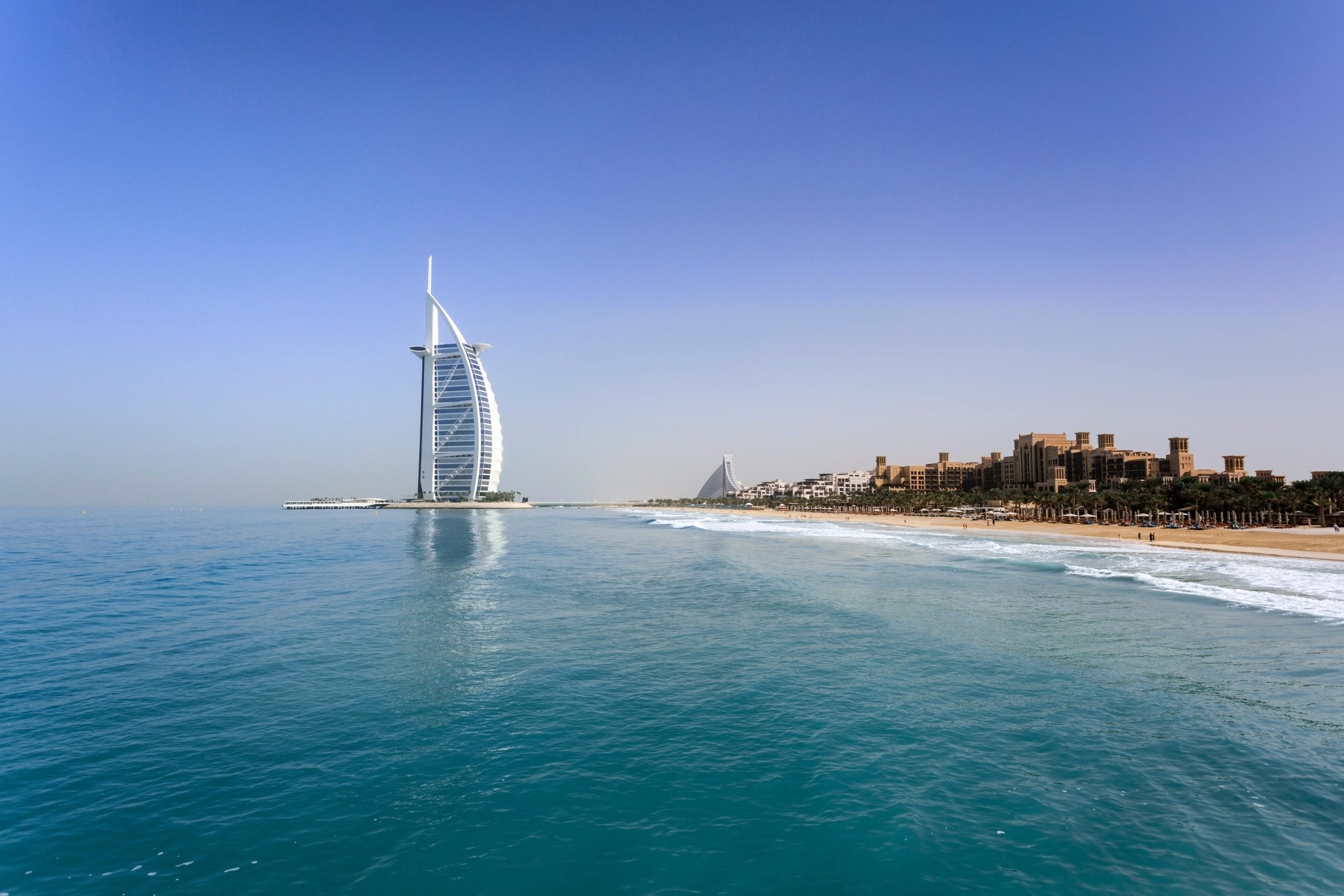The Evolution of Dubai’s Real Estate Market: Growth and Future Trends
Dubai’s real estate market has transformed dramatically over the past few decades, transitioning from a regional player to a global leader in luxury property and architectural innovation. For real estate developers like Nine Developments, understanding the historical context, current dynamics, and future trends of Dubai’s real estate market is essential to maintaining competitiveness and delivering high-value projects to investors. Let’s explore how the market has evolved, its current state, and where it’s likely headed in the coming years.
The Early Days: Foundations of Dubai’s Real Estate Sector
Dubai’s modern real estate journey began in the 1960s, spurred by the discovery of oil. The economic boom that followed provided the funds to develop infrastructure and iconic projects that would ultimately shape Dubai’s reputation. The government prioritized constructing residential and commercial buildings, especially in areas like Deira and Bur Dubai.
In 2002, the turning point came with the introduction of the Freehold Property Law, which allowed foreign nationals to own property in designated zones. This historic decision ignited an international investment wave, transforming Dubai into an investor-friendly market. The creation of iconic developments like The Palm Jumeirah, Burj Khalifa, and Downtown Dubai marked Dubai’s debut on the global real estate stage.
Growth Phases of Dubai’s Real Estate Market
Dubai’s real estate market has gone through distinct growth phases, marked by rapid expansions, a few setbacks, and strong recoveries. Understanding these phases provides insight into the market’s resilience and adaptability:
1. The Boom Years (2002-2008)
After the Freehold Law, Dubai experienced an influx of investors eager to own a piece of the Emirate’s rising skyline. Major developments like Dubai Marina, Business Bay, and Jumeirah Beach Residence emerged, catering to both luxury seekers and expatriates. This rapid growth created an unprecedented demand for property, fueling a construction boom that drew developers, architects, and contractors from around the world.
2. The Global Financial Crisis and Market Correction (2008-2012)
The financial crisis of 2008 brought the first major slowdown. Property values dropped significantly as the market was flooded with supply. Many projects were delayed, and speculative investors withdrew. This challenging period led to a regulatory evolution, with the government enacting measures to ensure market stability, such as stricter mortgage regulations and oversight by the Dubai Land Department (DLD).
3. Post-Crisis Recovery and Expo 2020 Boost (2013-2019)
Following the crisis, the Dubai real estate market gradually rebounded, supported by government initiatives like investor visas and improved real estate regulations. The announcement of Expo 2020 acted as a major catalyst, spurring growth in infrastructure and hospitality projects. New zones like Mohammed Bin Rashid City and Dubai South saw significant investments as part of the build-up to the global event, which was projected to attract millions of visitors and stimulate economic growth.
4. The Pandemic and Resilience of Dubai’s Market (2020-2022)
Like many global markets, Dubai’s real estate sector faced challenges during the COVID-19 pandemic. However, Dubai’s swift response and investor-focused policies, such as long-term visas and remote work visas, helped mitigate the impact. The luxury and villa segments saw remarkable demand as families prioritized space and privacy, boosting transactions in areas like Arabian Ranches, Palm Jumeirah, and Dubai Hills.
Current Market Landscape: Trends and Opportunities
As of today, Dubai’s real estate market has not only recovered from the pandemic but has experienced substantial growth. For Nine Developments, this presents a prime opportunity to align with current trends and capture the interest of discerning investors.
1. High Demand for Luxury and Branded Residences
Dubai has become synonymous with high-end luxury properties, attracting affluent buyers worldwide. The demand for branded residences, in partnership with global luxury brands, has become a defining feature of the market, with developments offering exclusive amenities and world-class architecture. The appeal of Dubai’s cosmopolitan lifestyle and tax-free environment continues to draw high-net-worth individuals seeking prime real estate investments.
2. Sustainability and Smart Living Solutions
With increasing awareness around sustainability, there is a growing demand for eco-friendly and energy-efficient developments. Dubai’s commitment to becoming a smart city is evident in its adoption of smart infrastructure and eco-friendly policies. Developers who prioritize green buildings, renewable energy sources, and smart home features can gain a competitive edge in this evolving landscape.
3. Community-Focused Developments
As Dubai’s population grows, the demand for community-centered residential areas has risen. People are looking for properties that offer an ideal work-life balance, which is driving growth in integrated communities with amenities such as schools, retail centers, healthcare facilities, and recreational spaces. Projects in neighborhoods like Town Square, Dubai Hills Estate, and Al Furjan are particularly popular among families and professionals.
4. Investor-Friendly Policies
The UAE government has introduced several incentives to attract foreign investors, including the Golden Visa and remote work permits. These initiatives make it easier for investors to secure residency and establish roots in Dubai. Additionally, the DLD has streamlined processes to enhance transparency and protect investor interests, fostering greater confidence in the market.
Future Trends in Dubai’s Real Estate Market
Looking ahead, Dubai’s real estate market shows immense potential for growth, with several factors expected to shape its future. For Nine Developments, staying ahead of these trends will be key to remaining competitive and appealing to the next generation of property buyers.
1. Technology Integration and Smart Cities
Dubai’s vision for the future involves becoming a fully integrated smart city. Real estate developments that incorporate technology solutions such as smart home systems, AI-powered security, and energy management systems will become highly sought-after. The increased demand for tech-enabled properties aligns with Dubai’s broader objectives to improve residents’ quality of life.
2. Rise of Mixed-Use Developments
With space at a premium, mixed-use developments are expected to gain popularity. These projects offer residential, commercial, and recreational spaces in one area, fostering vibrant communities. This trend will cater to those seeking the convenience of living close to work and leisure, while also attracting businesses looking to establish a presence in high-demand areas.
3. Increased Demand for Affordable Housing
While Dubai is renowned for luxury properties, the demand for affordable housing is on the rise. Developers are exploring innovative ways to offer high-quality homes at more accessible price points, appealing to the growing middle class and expatriate workforce. Affordable housing projects are anticipated to become more prevalent in locations like Dubai South and Al Qudra Road.
4. Sustainability Initiatives and Green Standards
Dubai’s commitment to sustainability will continue to impact real estate. Developers will increasingly adopt green building standards, implementing energy-efficient designs, waste reduction practices, and sustainable construction materials. The UAE’s Green Building Regulations are expected to become more rigorous, with developers actively participating in Dubai’s drive for a more eco-friendly future.
Conclusion
The evolution of Dubai’s real estate market reflects a journey of vision, resilience, and adaptability. From its early days as an emerging market to its current status as a global investment hub, Dubai has established itself as a prime location for real estate opportunities. For Nine Developments, staying aligned with current trends and anticipating future shifts will be crucial for success in this dynamic market.
As Dubai continues to innovate and lead in luxury, sustainability, and smart infrastructure, the real estate market offers immense potential for investors and residents alike. Whether you are a first-time buyer or an experienced investor, Dubai’s diverse offerings make it a city where property ownership is both a lucrative investment and an entry into a unique lifestyle.


